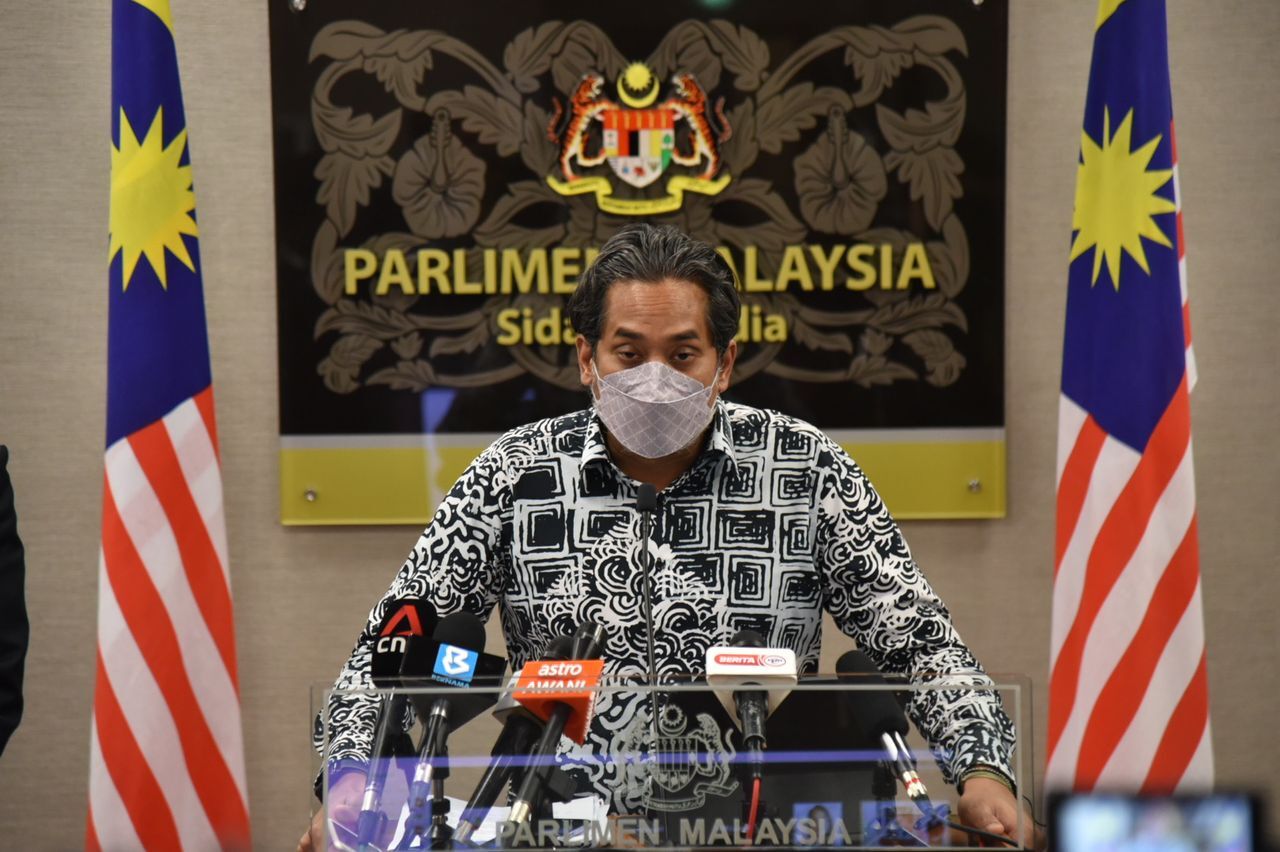KUALA LUMPUR, May 6 – Health Minister Khairy Jamaluddin today urged Malaysians to continue practising health protocols, even as he acknowledged pandemic fatigue three years into Covid-19.
Khairy said as Covid-19 testing is moving from lab-based RT-PCR tests to home-based antigen rapid test kits (RTK), it is imperative for people to continue reporting their self-test results on the MySejahtera app.
From May 1, the Ministry of Health (MOH) shortened the mandatory self-isolation period for positive Covid-19 cases to three days if they test negative on day four.
Singapore similarly compels mild positive Covid-19 cases to self-isolate at home for at least 72 hours, who can exit self-isolation after a negative self-administered antigen rapid test result.
Last February, England dropped all remaining Covid restrictions, including the legal requirement to self-isolate upon testing positive for Covid-19. Instead, people with Covid-19 are advised to stay home and avoid contact with other people for five days after the day they took their Covid-19 test.
“As long as the severity of these cases is low and our hospital capacity is protected (not just for Covid-19, but to clear massive backlogs from the last two years), we can continue to safely transition to endemicity,” Khairy wrote in an op-ed for The Star published today.
“But remember, going back to near normal does not mean pre-Covid normal. Do a personal risk assessment before attending a big event, tell your employer to invest in good ventilation and allow you to work from home when appropriate. Test if you have symptoms. Report the result and isolate if positive. Be kind and considerate, especially if someone asks you to put on a mask. Be safe.”
Daily Covid-19 tests in Malaysia plummeted from about 250,000 RTK tests on February 21 to some 11,000 on May 2. The majority of daily tests are RTK, with a minority comprising PCR.
Confirmed Covid-19 cases similarly declined from a high of about 33,000 on March 11 to fewer than 1,300 on May 5. Hospital admissions have been on a downward trend since mid-March.
Khairy acknowledged the challenge in continuing surveillance for new coronavirus variants due to the lack of financial resources.
“After having spent so much money on the pandemic, getting continued financial allocation to conduct expensive whole genomic sequencing (WGS) to detect which variant or sub-lineage is spreading in Malaysia will be tough, but extremely necessary.
“Without a decent number of WGS, we will not know quickly enough the trajectory of the disease and how to respond to it. We have been lucky that Omicron is not as severe as Delta in Malaysia.”
According to virus genome database Gisaid, Malaysia shared just 218 sequences of SARS-CoV-2 in the last 30 days, comprising 0.1 per cent of reported Covid-19 cases, lower than Indonesia (0.3 per cent), Singapore (0.9 per cent), and Cambodia (12 per cent).
A new Omicron sub variant, dubbed BA.2.12.1, is reportedly spreading in the United States, reportedly accounting for 36.5 per cent of infections in America by end April. Scientist Eric Topol tweeted that BA.2.12.1 has a 25 per cent transmission advantage over the BA.2 variant.
Khairy said Malaysia would continue to monitor the development of Covid-19 vaccines, particularly shots that could offer years’ long immunity, rather than months, and protection against infection and not just severe disease.
“If such a vaccine can be developed, it may be worth doing another round of mass immunisation.”
A real-world study by the US’ Centers for Disease Control and Prevention (CDC) published last February 18 showed that protection from mRNA vaccines (either Pfizer-BioNTech or Moderna) against hospitalisation declined from 91 per cent to 78 per cent by the fourth month after a third dose.
Khairy warned Malaysians that Covid-19 could still be deadly for vulnerable groups, even though the virus may be just a bad case of flu for healthy people, amid high vaccine coverage with 82 per cent of Malaysia’s population fully vaccinated and nearly half boosted with an additional vaccine dose.
“So apart from masks that can help protect them, we also need to ensure that vulnerable groups are prioritised when it comes to anti-viral treatments, good clinical care pathways at our hospitals, home recovery monitoring and additional boosters.”
The health minister projected waves of Covid-19 cases in Malaysia until the disease reaches an endemic point in the future, or a situation where infections continue to occur but do not overwhelm the health care system.








